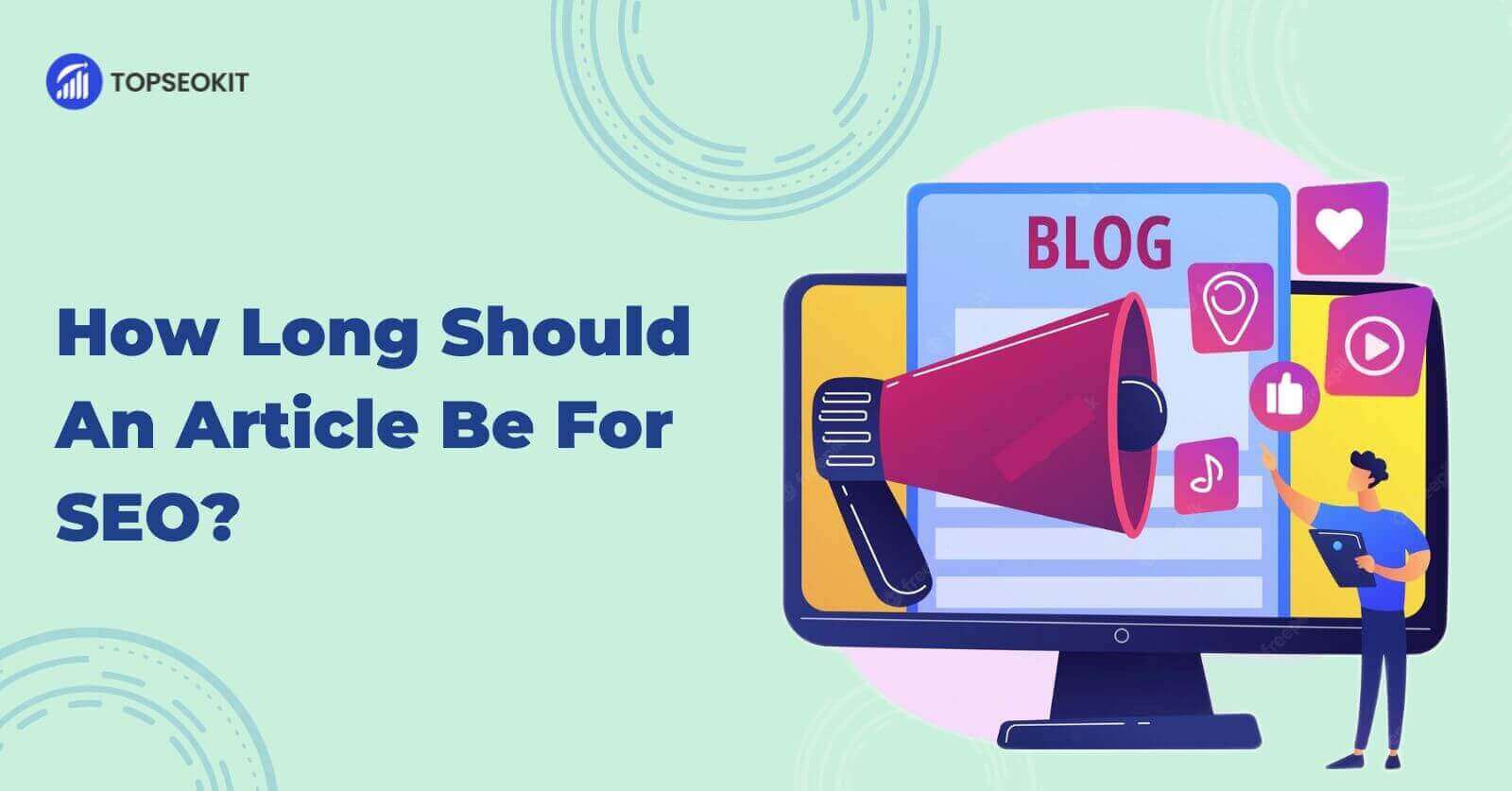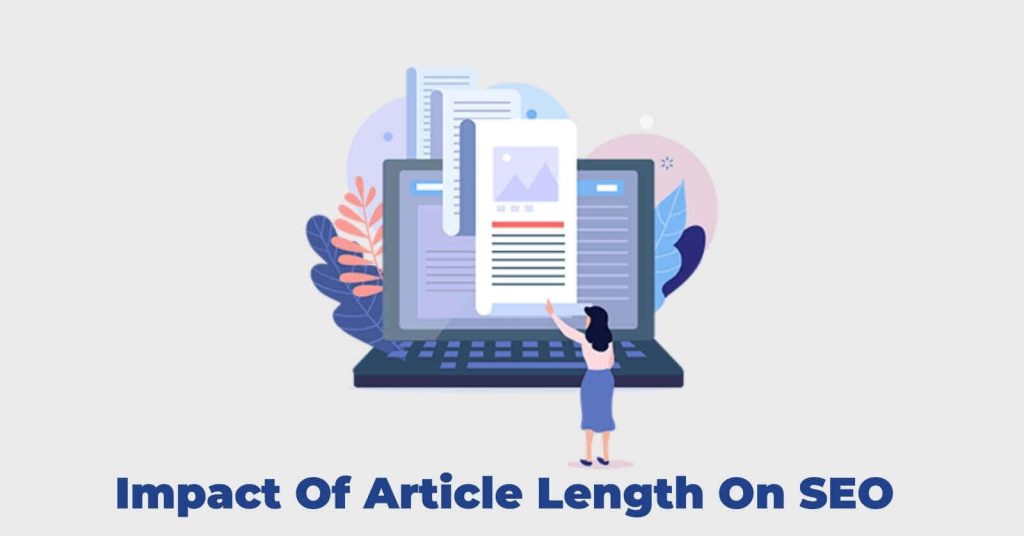
SEO Article Length – What’s the Magic Number?
Are you ready to dive into the impact of article length on SEO and provide best practices for optimizing articles for search engines? We will also explore the relationship between article length and other factors, such as keyword density and readability.
The length of an article is an essential factor to consider when it comes to search engine optimization (SEO). In today’s digital landscape, having a strong online presence is crucial for businesses and websites to attract and retain customers. Article length significantly affects how well a website ranks on search engines and how engaging it is for readers.
We aim to provide a comprehensive guide for website owners and content creators looking to improve their online visibility. Whether you are an expert in marketing or a beginner, this article will provide valuable insights and tips for optimizing your articles for search engines. So, if you are ready to learn how to write articles that perform well in search results, read on!
When it comes to on-page SEO, the length of an article is a crucial factor to consider. The length of an article can directly affect its ranking on search engines, which is why it’s important to understand how article length impacts SEO.
II. The impact of article length on SEO

How article length affects search engine ranking?
The length of an article can have a direct impact on its ranking on search engines like Google. Search engines prioritize websites that provide valuable and relevant information to users. A longer article typically contains more comprehensive information and is more likely to address a reader’s questions or concerns. This can improve its ranking on search engines and make it easier for readers to find the information they want.
Role of keyword density and its relationship with article length:
Another important factor to consider is keyword density. The ideal keyword density is around 2-3% of the word count. A longer article provides more opportunities to use relevant keywords naturally and organically, which can improve its ranking and make it easier for search engines to understand the topic of the article.
How longer articles provide more value to readers?
Longer articles also have the potential to provide more value to readers. They offer the opportunity to go into greater detail and provide a deeper analysis of a topic, increasing the likelihood that a reader will engage with the article and potentially share it with others. This can drive more traffic to the website and improve its overall online visibility.
Article length is crucial in SEO & SEM and can directly impact a website’s ranking on search engines. By considering article length and other important SEO factors to track, website owners and content creators can improve their online visibility and reach their target audience effectively.
Also Read: Use “People Also Search For” To Improve Your SEO
III. Best practices for article length

Ideal length for different types of articles:
The ideal length for different types of articles can vary depending on the topic and purpose of the article. For example, blog posts typically range from 500-1,500 words, while product descriptions can be shorter, around 150-300 words. However, it’s essential to consider the value that the article provides to the reader and aim for the length that best fits that value.
Importance of writing high-quality, relevant content:
Regardless of the article’s length, the most important factor for improving its ranking on search engines is the quality and relevance of the content. Search engines prioritize websites that provide valuable & relevant information to users. Writing high-quality, relevant content tailored to the reader’s needs and interests is key to improving a website’s ranking on search engines.
Impact of article length on readability and engagement
In addition to its impact on SEO, the length of an article can also impact its readability and engagement. A longer article can overwhelm readers, causing them to lose interest and leave the website. On the other hand, a shorter article may not provide enough information to meet the reader’s needs. Striving for a balance between the length of the article and its value to the reader can help to improve readability and engagement.
The ideal length of an article can vary depending on the topic and purpose of the article. The most crucial factor for improving a website’s ranking on search engines is the quality and relevance of the content. By considering article length and other important SEO factors, website owners and content creators can increase their online visibility & reach their target audience effectively.
IV. Tips for optimizing article length for SEO
How to use headings, subheadings, and bullet points:
Breaking up text with headings, subheadings, and bullet points can improve the readability and engagement of an article. This can also guide readers to the information they’re looking for and keep them engaged with the content. We can also use Headings, subheadings, and bullet points to divide large blocks of text, making it easier for search engines to understand the structure and relevance of the article.
Importance of using images and other multimedia elements:
Incorporating images and other multimedia elements into an article can also improve its engagement and readability. Images and videos can break up text and provide visual interest to readers. They can also help to illustrate concepts and ideas, making the article more accessible to readers. Additionally, images and videos can improve the overall user experience and encourage readers to stay on the website longer.
How to write compelling meta descriptions and titles:
Meta descriptions and titles are crucial in attracting readers to an article and improving its ranking on search engines. The meta description should provide a concise and accurate summary of the article’s content, while the title should be attention-grabbing and accurately reflect the article’s content. Writing compelling meta descriptions, meta tags & titles can help improve the article’s visibility on search engines and increase the likelihood that it will be clicked on by a reader.
In short, optimizing article length for SEO requires a careful balance of content length, readability, and engagement. By incorporating headings, subheadings, and bullet points, using images and multimedia elements, and writing compelling meta descriptions, meta tags, and titles, website owners and content creators can improve the ranking of their articles on search engines and reach their target audience effectively.
V. Conclusion
It is important to note that no one-size-fits-all approach to article length exists. The ideal length of an article will vary depending on the type of content, the target audience, and the website’s goals. Website owners and content creators are encouraged to experiment with different article lengths to find what works best for their website and audience.
Summing up, article length is vital in SEO and can significantly impact search engine ranking. By following best practices and optimizing article length, website owners and content creators can improve the visibility and ranking of their articles on search engines and reach their target audience more effectively. Ultimately, the goal is to provide valuable and relevant content to readers, regardless of blog length.
Frequently asked questions:
How long can a blog be for SEO?
The ideal length of a blog will depend on the type of content, the target audience, and the website’s goals. In general, longer articles rank higher on search engines and provide more value to readers. However, it is important to focus on writing high-quality, relevant content rather than simply trying to reach a certain word count.
Does blog length affect keyword density?
Yes, blog length can impact keyword density. A longer blog provides more space for incorporating keywords, which can improve search engine rankings. However, balancing keyword density and relevance is essential, as overusing keywords can lead to search engine penalties.
How can I optimize the length of my articles for SEO?
To optimize the length of articles for SEO, it is important to focus on writing high-quality, relevant content that provides value to readers. Additionally, you can use headings, subheadings, images, and multimedia elements to break up the text and improve readability. Writing compelling meta descriptions, meta tags, and titles can also help improve the article’s visibility on search engines.
Is it better to write shorter or longer articles for SEO?
No ‘one size fits all answer to this question’ exists, as the ideal length of a blog will depend on the type of content, the target audience, and the website’s goals. However, in general, longer articles tend to rank higher on search engines and provide more value to readers. The goal is to write high-quality, relevant content that gives readers value regardless of length.
Explore More:
Let’s dive in! Get started for free
